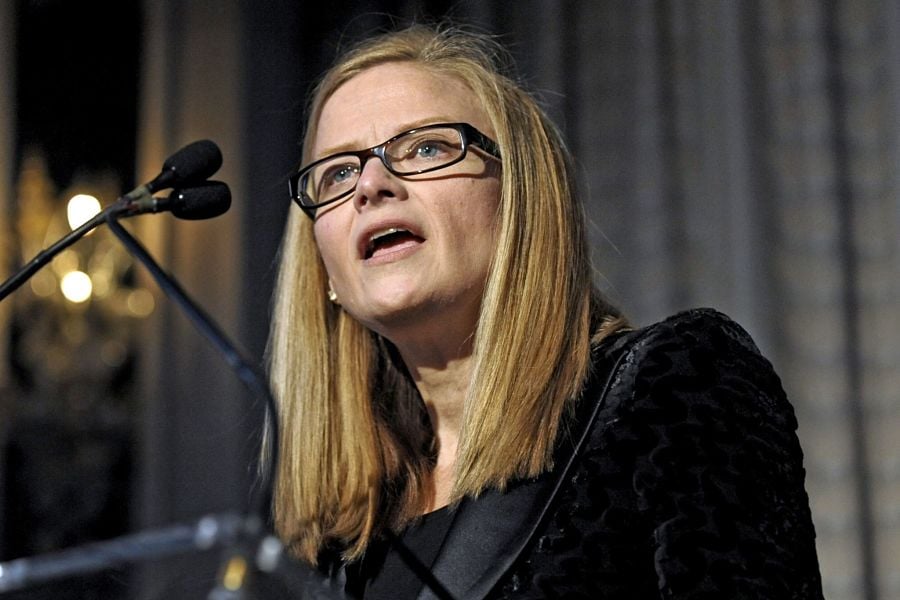

Wells Fargo & Co.’s former head of retail banking, Carrie Tolstedt, agreed to pay $3 million to settle a Securities and Exchange Commission case over misleading investors about a key metric the lender used to gauge success.
The settlement, which is subject to court approval, follows Tolstedt’s agreement in March to plead guilty to obstructing a probe of the bank’s practice of opening millions of accounts for customers without their authorization. Tolstedt faces as long as 16 months in prison under her plea agreement, according to a statement from the Department of Justice at the time. Her sentencing is set for September.
Enu Mainigi, Tolstedt’s lawyer, didn’t immediately respond to a phone message and email seeking comment on the settlement. She neither admitted nor denied the SEC’s allegations in the settlement.
Wells Fargo agreed to pay $3 billion in penalties in 2020 after the government brought cases against the bank for opening checking and credit accounts without customers’ authorization to meet aggressive sales goals. A representative for the bank declined to comment on the SEC’s settlement with Tolstedt.
“Companies do not act on their own. Where the facts warrant it, we will hold senior executives accountable for conduct that violates the securities laws,” Monique C. Winkler, head of the SEC’s San Francisco office, said in a statement.
The SEC alleged that Tolstedt made public statements and signed disclosures that misled investors about a metric of the financial success of the San Francisco-based bank. The regulator said that she knew, or was reckless in not knowing, that the measure was inflated by accounts and services that were “unused, unneeded, or unauthorized.” Her alleged misconduct occurred between 2014 and 2016, the SEC said.
In addition to the $3 million fine, the SEC said that Tolstedt agreed to pay back ill-gotten gains of almost $1.5 million, plus interest of about $450,000.

The leadership changes coming in June, which also include wealth management and digital unit heads, come as the firm pushes to offer more comprehensive services.

Strategist sees relatively little risk of the university losing its tax-exempt status, which could pose opportunity for investors with a "longer time horizon."

As the next generation of investors take their turn, advisors have to strike a fine balance between embracing new technology and building human connections.

IFG works with 550 producing advisors and generates about $325 million in annual revenue, said Dave Fischer, the company's co-founder and chief marketing officer.

Five new RIAs are joining the industry coalition promoting firm-level impact across workforce, client, community and environmental goals.
RIAs face rising regulatory pressure in 2025. Forward-looking firms are responding with embedded technology, not more paperwork.
As inheritances are set to reshape client portfolios and next-gen heirs demand digital-first experiences, firms are retooling their wealth tech stacks and succession models in real time.
